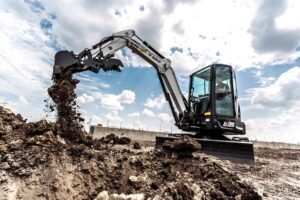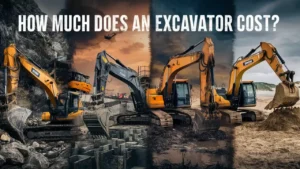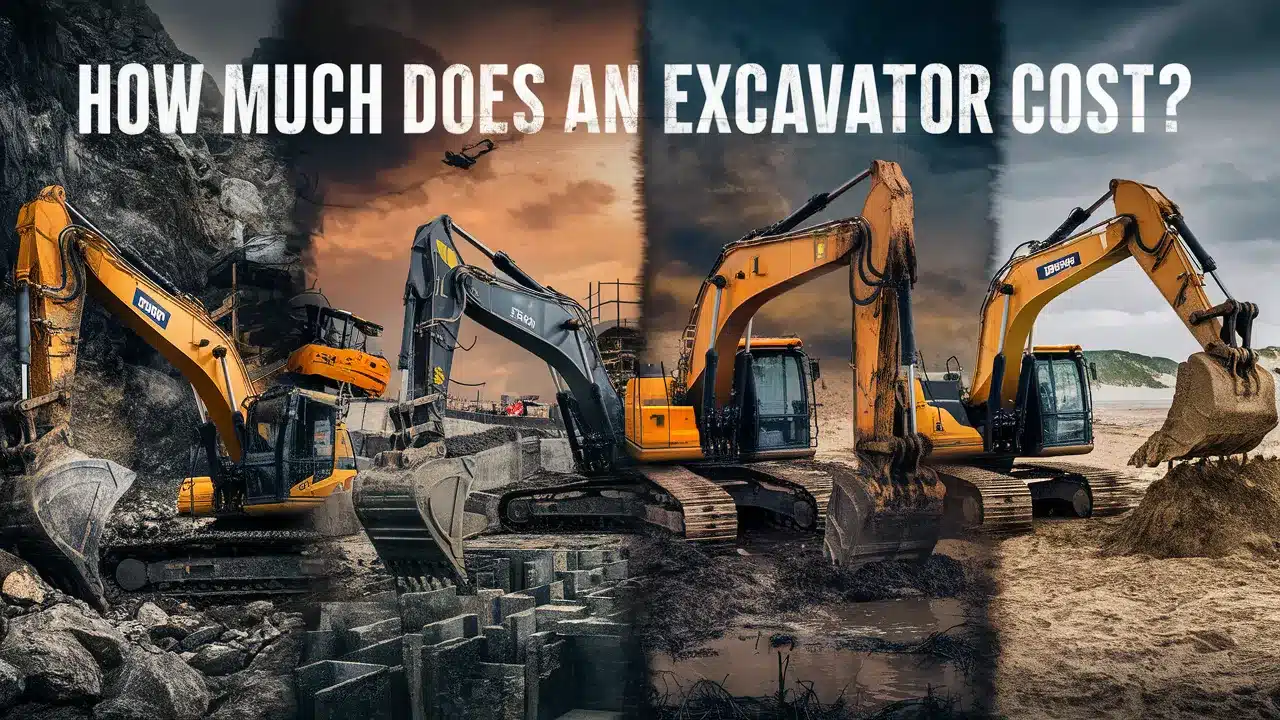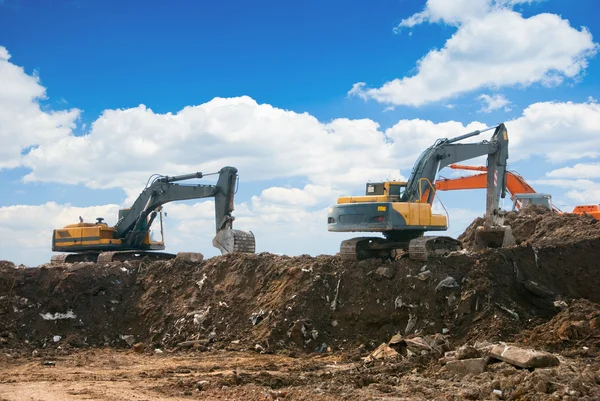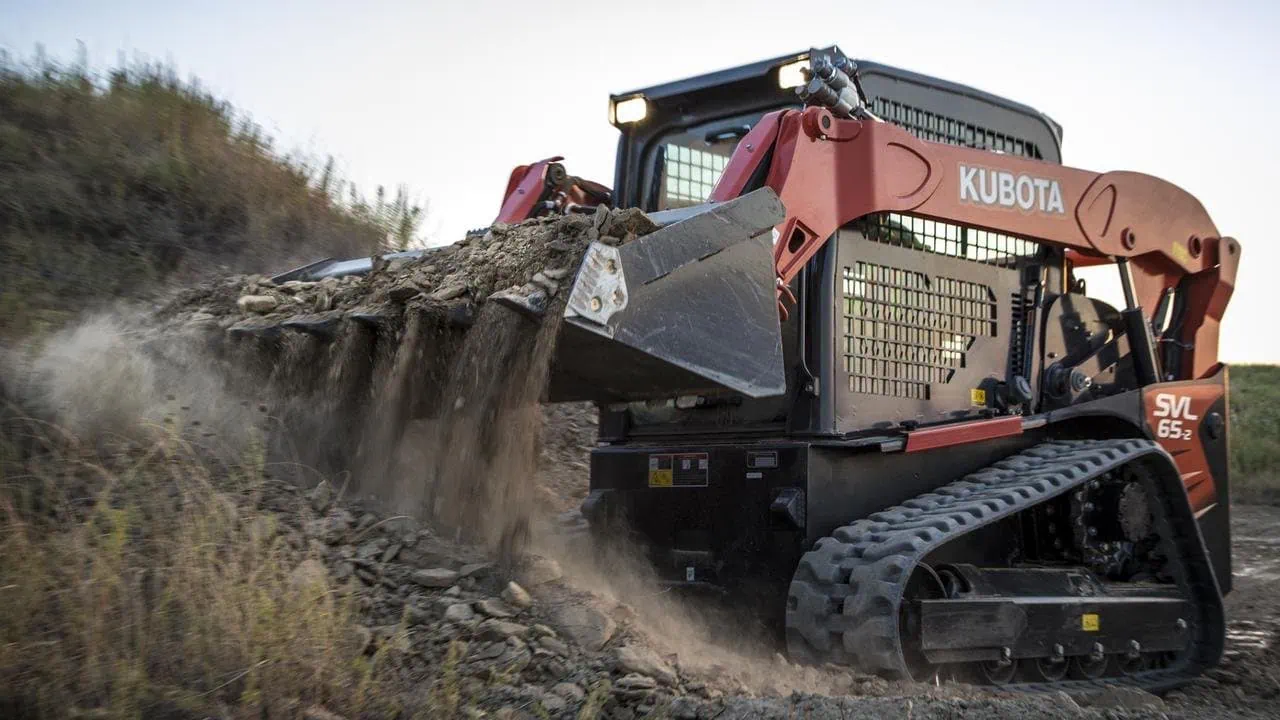Table des matières
BasculerIntroduction
Before purchasing Chinese Used Wheel Loaders, knowing what to check is vital. Wheel loaders are big, powerful machines used in construction. You want one that works well but must stay on budget. We’ll focus on what’s important when buying Chinese Used Wheel Loaders.
We’ll discuss how to determine your needs, what to inspect on the loader, and how to discuss the price. If you’re a construction worker or simply want to know more about these heavy machines, this guide is for you. We’ll ensure you understand what to look for before buying Chinese Used Wheel Loaders. Let’s get started!
How Should You Assess Your Needs and Budget for Chinese Used Wheel Loaders?
Before making any decisions about buying Chinese Used Wheel Loaders, it’s important to look at your needs and budget. Here’s what you need to consider
Work Needs For Chinese Used Wheel Loaders
When you’re a construction worker, the projects you handle can vary. Think about the size and type of projects you usually work on. Do you need a small or large wheel loader? Understanding your workload will help you pick the right size.
Budget
Your budget is a crucial factor. How much money can you allocate for Chinese Used Wheel Loaders? Remember, there are costs beyond the purchase price, like maintenance and fuel. Be sure your budget covers all the expenses.
Special Features On Chinese Used Wheel Loaders
Depending on your projects, you might need special features or attachments for your wheel loader. These could include things like buckets, forks, or ploughs. Make a list of the features that will help you do your job more efficiently.
Used vs. New
Consider whether you want Chinese Used Wheel Loaders or a new one. Used ones are cheaper but may have more wear and tear, while new ones come with warranties but are more expensive. Your budget will play a big role in this decision.
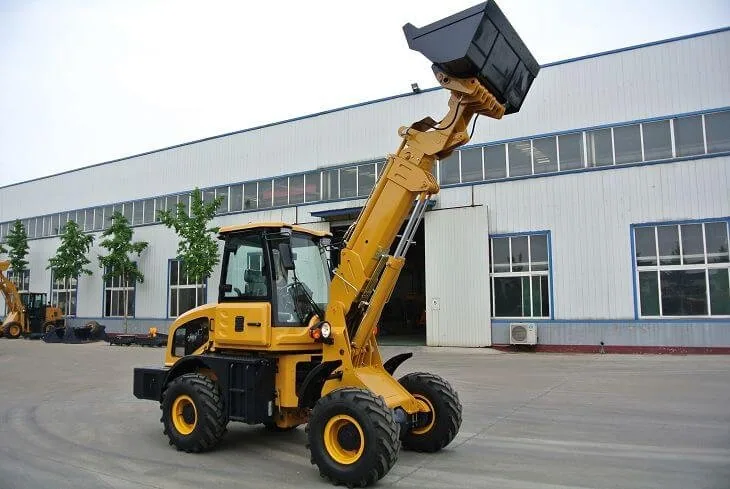
What’s Involved in Market Research and Pricing For Chinese Used Wheel Loaders?
A construction worker must know the market and pricing for Chinese Used Wheel Loaderss. Here’s what you need to understand without any complicated jargon
Market Overview
The market for Chinese Used Wheel Loaders includes various sources. You can find them at dealerships, auctions, or from private sellers. Dealerships often offer inspected and serviced machines. Auctions might have lower prices but be riskier, and private sellers can provide various options.
Pricing Considerations
Prices for Chinese Used Wheel Loaders can vary greatly. It depends on the loader’s age, condition, and brand. Newer models generally cost more than older ones. Be sure to compare prices from different sources to find the best deal.
Brand and Model Selection
Some brands are well-known for their durability and reliability. While you may pay more for these, it can be a smart investment. Popular brands include Caterpillar, John Deere, and Volvo. Make sure to choose a model that suits your project needs and budget.
Resale Value
Think about the future. Some brands and models hold their value better over time, which is important if you resell your loader later. This can be a critical factor when deciding on your purchase.
What Information Can You Gather From Inspection and Maintenance History?
Understanding Chinese Used Wheel Loaders’s condition and maintenance history is like checking a vehicle’s history before buying it. Here’s what you should know
Dossiers d'entretien
Just like looking at a car’s service history, ask for the maintenance records of the wheel loader. These records will tell you how well the machine was cared for. Regular maintenance is a good sign that the loader is in good shape.
Hours of Operation
The number of hours a wheel loader has been in operation is a key indicator of its wear and tear. Lower hours generally mean less usage, which can be a good thing. Higher hours might mean more maintenance is needed.
Signs of Neglect or Overuse
Inspect the loader for signs of neglect or poor maintenance. This could include rust, worn-out parts, or leaks. Neglected machines may have hidden problems that could lead to costly repairs.
Previous Repairs and Upgrades
Check if there have been any significant repairs or upgrades. While some repairs are normal, frequent or major repairs might be a red flag. Upgrades can be a positive sign as they may improve the loader’s performance.
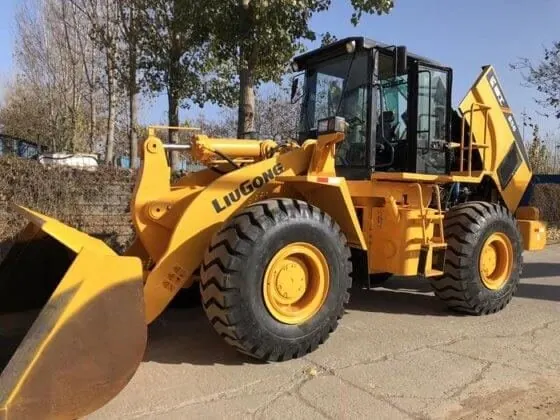
What Key Factors Define the Mechanical Condition?
When you’re a construction worker, you need a wheel loader that’s mechanically sound and reliable. Here’s what you should look for in its mechanical condition
Engine, Transmission, and Hydraulics
Start by checking the engine and transmission. They should run smoothly without strange noises or vibrations. Listen for any unusual sounds and ensure the engine starts easily. Test the hydraulics and controls. Ensure the loader’s arms, boom, and bucket move smoothly and respond to your commands. Any delays or jerky movements could indicate issues.
Tires or Tracks
Inspect the tires or tracks for wear and damage. Well-maintained tires or tracks with good tread provide better stability and traction. Replacing these can be costly, so assessing their condition is essential.
Bucket or Attachment Condition
Examine the bucket or attachments for any wear, cracks, or damage. They should be in good shape to perform efficiently.
Frame and Chassis
Look for signs of damage or excessive rust on the loader’s frame and chassis. A sturdy frame is crucial for safety and performance.
How Is Operational Testing Carried Out?
Test Drive and Functional Checks
Before deciding on Chinese Used Wheel Loaders, taking them for a test drive and performing functional checks is essential. Here’s what you need to do in simple terms:
- Test Drive:Like test-driving a car, take the wheel loader for a spin. Pay attention to how it handles, accelerates, and brakes. A smooth ride is a good sign.
- Functional Checks:Test all the loader’s functions. Ensure the loader arm, boom, and bucket work as they should. Check the steering and braking systems for responsiveness. It’s important to confirm that all controls function smoothly.
Safety Features Evaluation
Safety is a top priority on construction sites, and the wheel loader should have essential safety features. Here’s what you should look for:
- Lights and Alarms:Ensure all lights, including headlights, brake lights, and turn signals, are working correctly. The loader should also have alarms that warn of movement, especially when moving backwards.
- Seat Belts and ROPS:Check for seat belts and the presence of a ROPS (Roll-Over Protection Structure). These safety features are vital for the operator’s protection.
- Visibility:Assess the visibility from the operator’s seat. Make sure the mirrors are in good condition and correctly adjusted.

What Role Does Documentation and Negotiation Play in the Process?
When you’ve found Chinese Used Wheel Loaders that meet your needs, it’s time to handle the paperwork and negotiations. Here’s what you should know
Price Negotiation
Begin by discussing the price with the seller. Be ready to negotiate, but also have a clear budget in mind. Don’t be afraid to ask for a fair deal, and consider any maintenance or repairs that might be needed.
Sale Agreement
Once both parties agree on the price, it’s essential to draft a sale agreement. This legally binding document outlines the terms and conditions of the sale. It should specify the price, payment method, warranties, and what’s included in the sale.
Title Transfer
Ensure that the title of the wheel loader is transferred to your name. This is a crucial step in making the loader legally yours. Double-check that all paperwork is to avoid legal complications.
Inspection Reports
Request any inspection reports or documents detailing the wheel loader’s condition. Having these records can be useful for future reference and maintenance planning.
Payment Method
Determine the payment method, whether cash, check, or financing. Be cautious and verify the legitimacy of the payment.
How Do Financing, Insurance, and Delivery Affect the Purchase?
Financing Options
When buying Chinese Used Wheel Loaders, you may need financing if you don’t have the full purchase amount upfront. Financing options can help spread the cost over time. These options include loans or leasing.
Loans involve borrowing money to purchase the loader, while leasing means you pay for its use over a specific period. Be sure to compare interest rates and terms to find the best financing solution for your budget.
Equipment Insurance
It’s crucial to have the right insurance coverage for your wheel loader. Equipment insurance can protect you in case of accidents, theft, or damage. This insurance can be tailored to your specific needs, ensuring you’re financially covered in unforeseen events. It’s essential for safeguarding your investment.
Transportation and Delivery Planning
Getting your wheel loader to your worksite is the final step. You’ll need to plan how it will be transported. This may involve hiring a transport service, using a trailer, or driving it to your location. Consider the logistics and costs of transportation when budgeting for your purchase.
Inspection Before Delivery
Before taking delivery, perform a final inspection to ensure the wheel loader matches the description and condition agreed upon in the sale agreement. This is your last chance to confirm you’re getting what you paid for.
Secure Transportation
If hiring a transport service, ensure they have the necessary equipment and experience to move the wheel loader safely. Proper securing and loading are essential to avoid damage during transit.
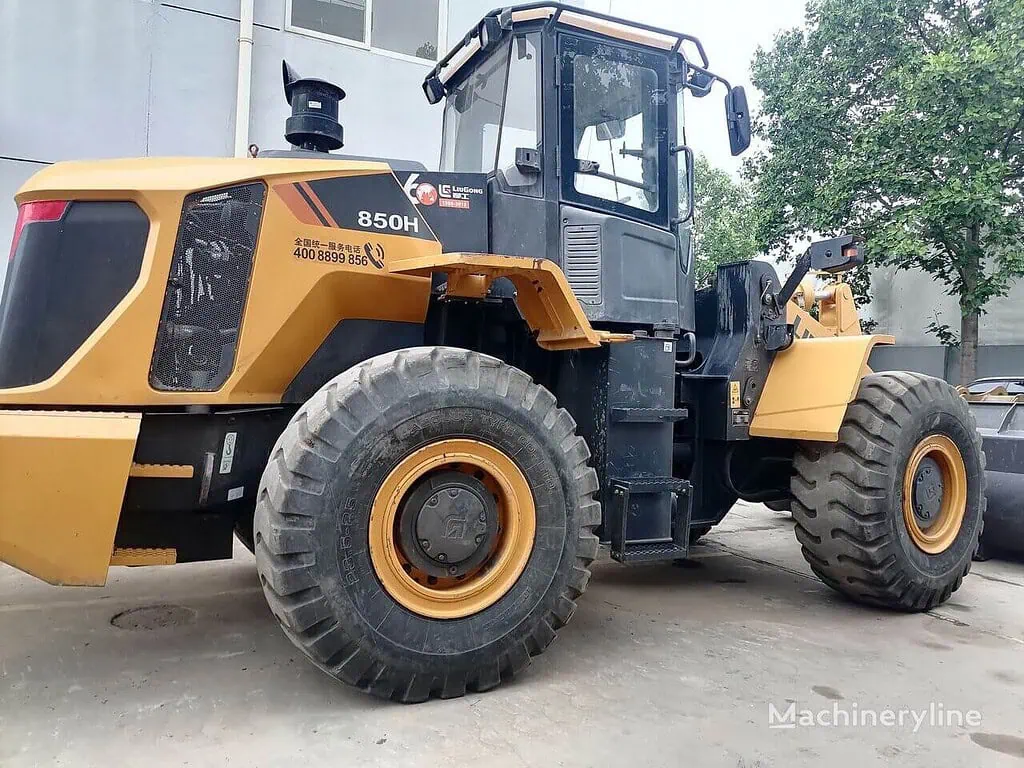
Conclusion
Consider your budget and thoroughly check the machine when buying Chinese Used Wheel Loaders. Look at the market, negotiate wisely, and ensure all the paperwork is in order. Think about financing, insurance, and how you’ll get the loader to your worksite. Remember, it’s about making a smart investment for your construction work.
A well-maintained and suitable wheel loader can help you work efficiently and safely. So, don’t rush the process; take the time to make the right choice. With these steps, you’ll be better prepared to find the perfect Chinese Used Wheel Loaders to get the job done.
FAQ
How Do You Inspect a Wheel Loader?
Inspecting a wheel loader involves checking its mechanical, hydraulic, and electrical components looking for signs of wear, damage, or maintenance history.
How Many Hours Does a Wheel Loader Last?
The lifespan of a wheel loader can vary, but with proper maintenance, it can last around 12,000 to 15,000 hours of operation.
How Long Do Wheel Loader Tires Last?
Wheel loader tire lifespan depends on usage, typically lasting 2,000 to 4,000 hours. Regular maintenance can extend their life.
What Is the Maintenance of a Wheel Loader?
Regular checks, lubrication, filter changes, tire care, and addressing issues promptly ensure wheel loader maintenance.
Contactez-nous to purchase high-quality Chinese used wheel loaders.

